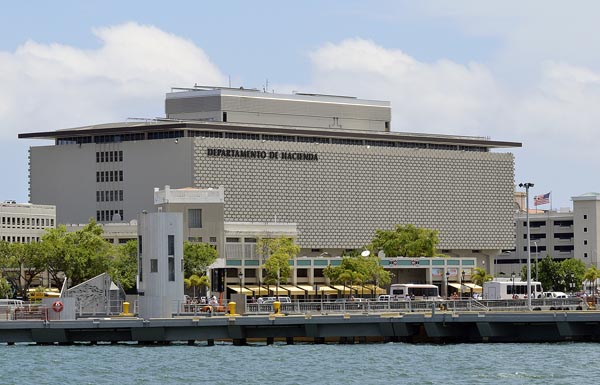Treasury Dept. seeks exclusion from federal Foreign Tax Credit public policy

The Puerto Rico Treasury Department has asked its federal counterpart to clarify whether a new regulation under consideration concerning credits granted for taxes paid by corporations doing business abroad would apply to Puerto Rico.
In a letter sent to US Treasury Secretary Janet Yellen, the local government asked for the proposed “Guidance Related to the Foreign Tax Credit” regulation (REG-101657-20) not be applied to Puerto Rico, given its condition as a US jurisdiction.
Treasury Secretary Francisco Parés said the local government based its request to the federal agency on the fiscal structure between the US and Puerto Rico, which in some cases treats the island as a foreign location for tax purposes.
In a call with reporters, Parés said Treasury is asking Yellen to exclude US-based corporate taxpayers doing business in Puerto Rico from the regulation, as well as the taxes imposed under Puerto Rico’s Act No. 154 of 2010, which stateside companies pay locally and offset by requesting tax credits from the IRS.
In Puerto Rico, the bulk of those corporate taxpayers are pharmaceutical companies and medical device manufacturers. Act 154 imposes a 4% tax on certain purchases made by foreign corporations located in Puerto Rico, shoring up about $2 billion in revenue annually for the Commonwealth. Losing the tax credit could push companies to shut down operations if they determine that operating in Puerto Rico is not cost-effective.
In the call, Parés confirmed that the Puerto Rican tax structure that expires in 2026 applies to about 40 companies, with 10 of them accounting for 75%, or about $1.5 billion, of that revenue. Act 154 tax collections represent more than 20% of the General Fund income and 50% of the government’s Gross Domestic Product.
In the letter, the local government submitted a number of recommendations, establishing firstly that Puerto Rico should not be included in the changes that are being considered because it is a US territory, not an international jurisdiction, Parés said.
The local Treasury Department asked Yellen and Mark J. Mazur, deputy assistant secretary of the IRS’ Office of Tax Policy, that the regulation be amended to include a “carve-out” regarding the attribution of income generated by a resident of Puerto Rico, so that it complies with certain jurisdictional requirements proposed in the IRS regulation.
“The impact of the proposed regulations — if Treasury concludes that they do apply technically to Puerto Rico — would be to deprive an American territory of close to one-fourth of its budget, potentially cause US companies to leave Puerto Rico with a sharp increase in unemployment, and other forms of economic harm in a territory of the United States that has suffered from a long-term economic recession and a massive hurricane that delayed its economic recovery,” Parés said in the letter.
If the IRS ultimately decides to move forward on altering the way foreign tax credits are attributed, then the local Treasury Department would need a three-year transition period to find a replacement for Act 154, Parés said.
“The transition period that we’re requesting would allow the local government to model a new tax that generates enough income to replace Act 154, while avoiding the instability that an abrupt change can generate to the economy, the possible exodus of companies and an increase in unemployment,” he said. “What we need now is certainty.”










